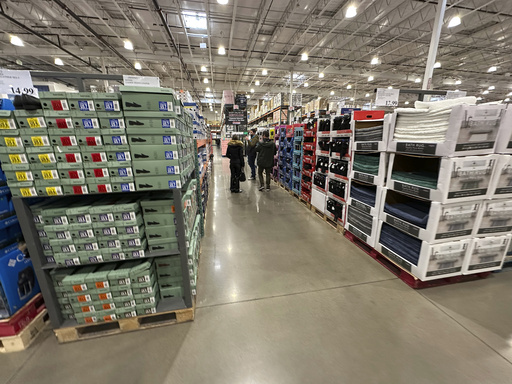WASHINGTON — The month of February witnessed a dramatic decrease in U.S. consumer confidence, recording the steepest monthly drop in over four years, as reported by a business research organization. Concerns are mounting among Americans regarding stagnant inflation and the potential for a trade conflict under President Donald Trump’s administration.
The Conference Board revealed that its consumer confidence index fell sharply to 98.3 in February from a January figure of 105.3. This outcome was considerably lower than the 103 reading economists anticipated, according to a survey conducted by FactSet. The seven-point decline represented the largest month-to-month fall since August 2021, triggering immediate reactions in the financial markets.
Wall Street reacted as the S&P 500 decreased by 0.7%, the Dow Jones Industrial Average slipped 1.7%, and the Nasdaq fell by 1.4%. A growing proportion of survey respondents voiced concerns over inflation, marking a significant rise in mentions regarding trade and tariffs, according to the board.
The Tuesday report from the Conference Board highlighted a drop in the measure of Americans’ short-term outlook on income, business, and the job market, which declined 9.3 points to 72.9. The Conference Board indicates that readings below 80 can suggest a looming recession. The anticipation of a recession within the next year surged, reaching a nine-month high, the organization reported.
Consumers’ perceptions of current economic conditions fell by 3.4 points to a reading of 136.5 for the month, with opinions on the labor market hitting a downturn. According to the group, “Current labor market assessments were less favorable, and consumers showed growing pessimism toward future business conditions and income prospects. Employment outlook sentiment reached a ten-month low.”
Despite preceding optimism at the tail end of 2024, accompanied by strong holiday season expenditure, January saw a notable slump in U.S. retail sales, partly attributed to adverse weather conditions impacting vehicle sales and retail store revenues. The Commerce Department recently announced a 0.9% decline in retail sales from December, posing the greatest drop over the past year after recording strong increases in the two previous months.
The consumer confidence index is an essential measure that assesses Americans’ current economic perspectives alongside their six-month economic forecasts. Given that consumer spending comprises approximately two-thirds of U.S. economic activity, economists are keenly attuned to these figures to gauge the sentiment and potential behavior of American consumers.


